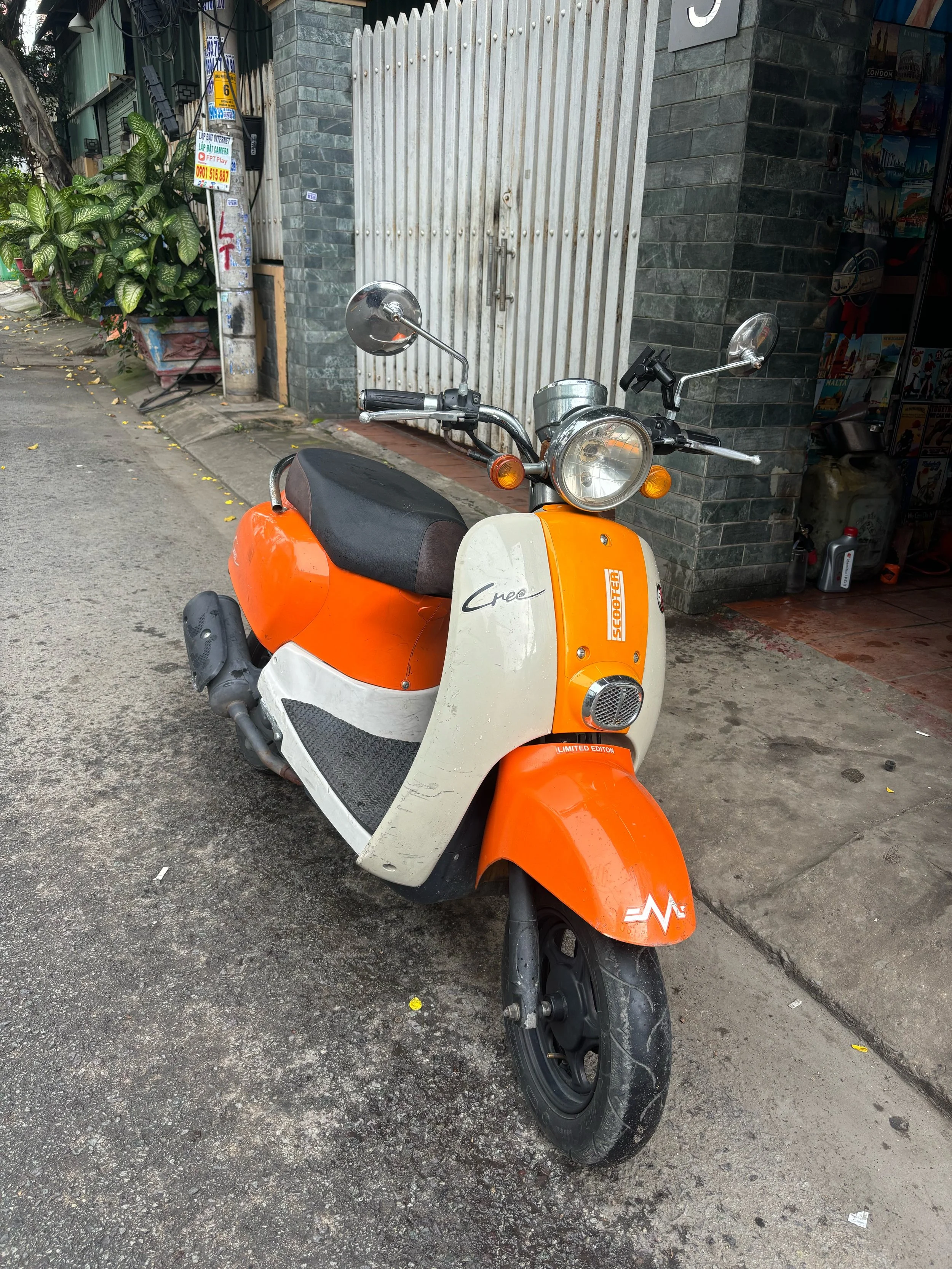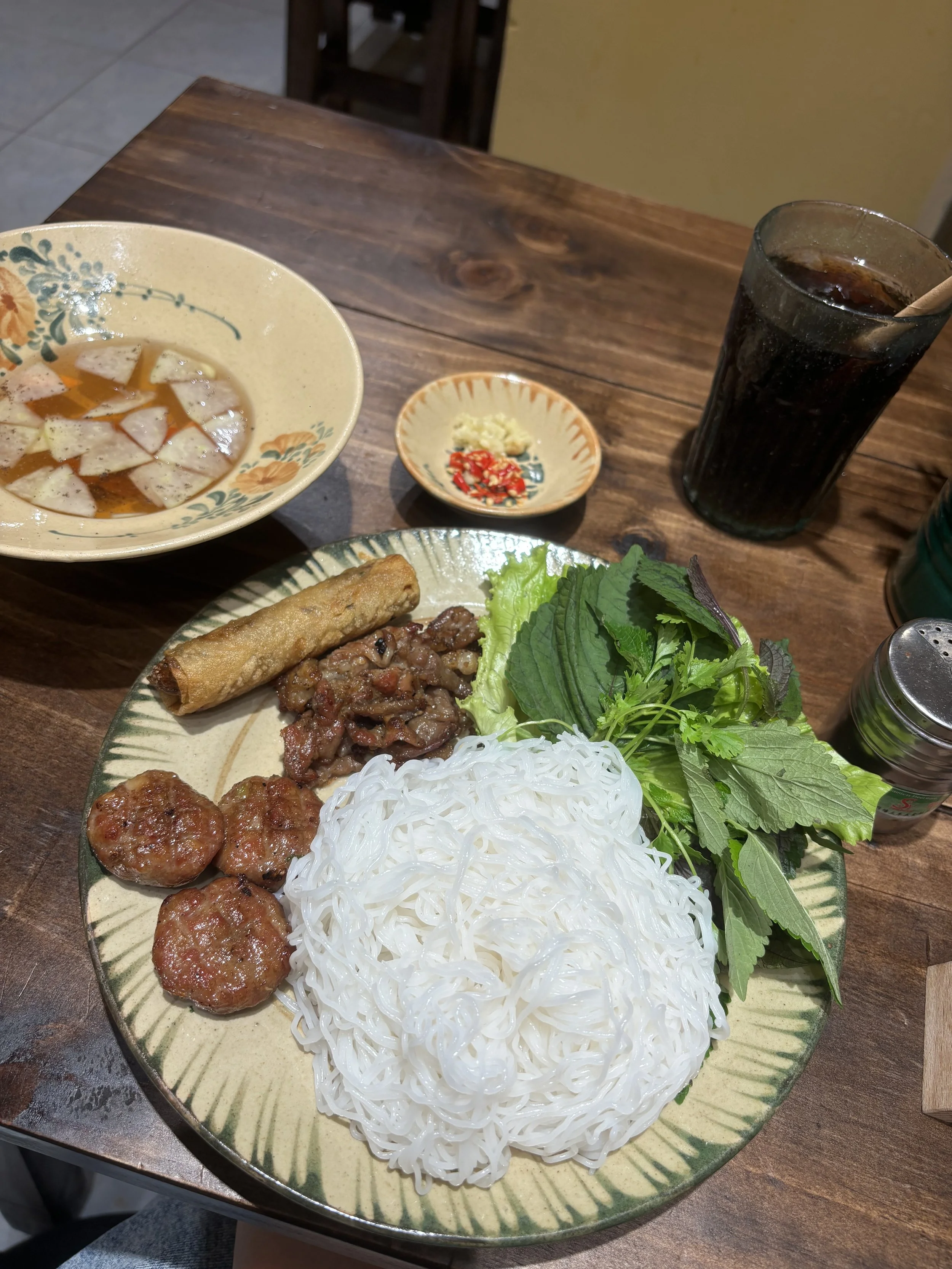Can I Afford to Live in Saigon?
I understand talking about money can be a bit of a sensitive topic, especially back in England, where people would rather discuss the weather than admit how much we earn and spend. But since this has been one of the main questions I get “Can you actually afford life in Saigon as a teacher?”, I’m just going to lay it all out there. Because, I wish I’d had more open, realistic info before moving out here myself.
So… Can You Afford It?
The short answer: yes.
The longer answer: you’ll probably live better than you ever have before.
Of course, compared to Western salaries, it looks small on paper. Most language centre teachers make around £1,000-£1200 a month, depending on how many classes you cover on top of usual hours. Some centres pay more, some less, and public schools usually pay a lot higher, I just knew that wasn’t the environment for me. I prefer smaller classes and fewer hours.
And even with that, it’s more than enough. I live comfortably, travel often, eat out twice a day, go to lot’s of social events, and I am still managing to save.
The Kitchen I Never Step Foot In
I’ll be honest, I haven’t cooked a single meal since I got here. My kitchen is now a glorified storage space, that hob will never see action.
Food here is so cheap and good that cooking just doesn’t make sense. On average, I spend £2 per meal, and when I feel like splashing out, maybe £5. Street food is the best thing ever, but even international restaurants are completely affordable.
And cafés? Don’t get me started. I go to one every single day, sometimes two. A coffee or smoothie costs around £1–2, depending on whether it’s a local gem or a slightly fancier, touristy place. I’ve turned café hopping into a full time hobby at this point.
Getting Around
One of the absolute best things about living here is how easy it is to get around, whether it’s just across the city or to the other end of the country.
I rent my motorbike for £40 a month, and petrol costs me about £1 every few days. And that’s with me constantly driving around the city for work, social events, or random new hobbies I’ve picked up. It’s convenient, fun, and ridiculously cheap. Once you get used to the traffic (and trust me, you will), it’s a total game changer.
But the ease doesn’t stop at city limits. Day trips are unbelievably affordable, I took a luxury bus (using Vexere.com for anyone interested) to Bà Đen Mountain for £6 return, and it’s nearly three hours away. National Express could never.
Flights around Vietnam are just as budget friendly. I recently booked a trip to Da Lat for £40 return, and I’ll be spending Christmas with my parents in Da Nang, which cost me about £60 round trip.
There’s just so much to see here, and the best part is, it’s all within reach.
Rent & Bills
I know people living in other districts, areas with less of an expat scene, paying less than £200 a month for really nice places.
But I wanted a mix of local life and the expat life, so I chose District 1, right in the heart of Saigon, and pay £240 a month for my apartment. That includes everything except electricity.
My bill last month? 25p.
Granted, I’ve been sleeping with the fan on lately, so I reckon this month will be closer to £10. Still, that’s nothing compared to the rent horror stories back in the UK. For £240 there, you might get a cupboard under the stairs, if you’re lucky.
Treating Yourself
I’m not big on nails or lashes, so I can’t say much about those prices, but facials and massages here are a dream. They’re high quality, cheap, and make you feel like you’re living in a five-star resort. What would be a Mother’s Day treat back in the UK is something I can easily do twice a month here.
Shopping’s another win. I bought a silk dress for £14 the other day, and the quality is insane. Though be warned! The Asian sizing will humble you. Prepare to be an XL.
Do You Need Two Jobs?
A lot of teachers here do have more than one job, it’s super common to mix teaching at a language centre with private tutoring, public school, or a bit of freelance work. But that’s usually by choice, not necessity. I would like to stress, one job here is more than enough to live comfortably, travel, and still save.
If I’d read before moving out that many teachers juggle a couple of roles, I think it would’ve put me off (it actually did once). I had an offer to teach in Puerto Rico, but was told I’d need two or three jobs just to get by, which sounded exhausting. Here, it’s a totally different story. You can have a great lifestyle on a single salary, but there’s also plenty of extra work around if you want it.
For me, that’s the only reason I’ve started looking for a second job, not because I need one, but because I want to make the most of what’s available while I’m here. It’s so easy to find extra work, especially online, and since I’m hoping to move into remote work next year, it feels like the perfect time to start exploring that side of things. Still, I love my current centre and my team too much to give that up anytime soon, so for now, it’s all about exploring options.
The Reality for Graduates
Something I’ve been thinking about a lot lately is how strange the post-uni life is back home. I know so many people, bright, hardworking, highly educated, who are struggling to find jobs, or at least ones that pay a living wage. I was one of them.
So to come out here and see how many opportunities there are for expats feels surreal. There’s constant demand for teachers, editors, marketers, even people with social media or design experience. You can find work quickly and build a lifestyle that would be almost impossible to replicate in most Western cities right now.
That said, I’m also very aware that this abundance of jobs for foreigners exists in a system where locals often don’t have the same access. Teaching centres and international companies can prioritise native English speakers, which creates an imbalance. I never want to overlook that.
I’m incredibly grateful for the opportunities here, but I try to stay conscious of the fact that my experience is shaped by privilege, a passport that opens doors, a native accent that’s in demand, and a market that values expats in a way that isn’t always fair.
It’s not about guilt, just awareness. It’s important to enjoy this experience, but also to recognise the bigger picture.
Saving & Remittance Fees
Even while eating out daily, travelling, and saying yes to every plan, I still manage to save. This month, I’m on track to save around £600, something that would’ve been impossible back home.
However, and this is something I didn’t realise until recently, getting that money out of Vietnam isn’t as simple as it sounds. Remittance fees here can be steep, and there are limits on how much you can transfer internationally without a lot of paperwork.
You can’t just hop on your banking app and move money around. Most Vietnamese banks charge both a local fee and an international service fee, and some require approval to prove that your income is legal and taxed. It’s not impossible, just complicated and time consuming.
So yes, saving is 100% possible here. But if you’re planning to move money back home regularly, it’s worth doing some research first and setting realistic expectations.
The Only Thing I’d Say…
If you’re thinking of coming, my one piece of advice is: come with some savings.
The first month or so can be expensive, between visas, deposits, and getting yourself set up, there are a few hidden costs that can catch you off guard. (I actually have another blog all about the visa situation if you want to check that out.)
Once you’re settled, though, life gets very affordable very quickly.
So, Is It Doable?
Absolutely.
You can live comfortably, eat out every day, explore the country, treat yourself, and still save money, all while teaching.
It’s one of the few places where you can have a genuinely good quality of life without working yourself to death.
If you’re on the fence, take this as your sign.
With love from Saigon,
Anaïs
In case you need convincing, here’s some hard evidence of how tough life is in Saigon.













